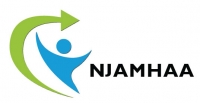Increasing Prevalence of Alzheimer’s Disease Underscores Need for Services
November is National Alzheimer's Disease Awareness Month
November 15, 2017
MERCERVILLE, NJ - Recent scientific findings suggest that people who have abnormalities in breaking down glucose have higher concentrations of the sugar in their brains, and worse symptoms of Alzheimer's disease, than the general population. While the exact relationship between blood glucose and Alzheimer's is unknown, findings like this bring scientists one step closer to developing a treatment for the disease that is the sixth leading cause of death in the United States.
According to the Alzheimer's Association, deaths from Alzheimer's disease have climbed 89% between 2000 and 2014, and one in three seniors dies with Alzheimer's or another dementia. The social cost of the disease is enormous, both from the financial and time burden it puts on caregivers, as well as the emotional toll it has on families.
The New Jersey Association of Mental Health and Addiction Agencies, Inc. (NJAMHAA) is a trade association representing nearly 160 New Jersey community-based providers of behavioral healthcare services, which can be found in every county statewide and serve about 500,000 individuals of all ages each year. NJAMHAA members treat many seniors who depend on Medicare and Medicaid, which are both vital programs that fund many treatments, medications, and other services for seniors who are suffering from Alzheimer's disease. Throughout the ongoing federal healthcare reform efforts, NJAMHAA has been a strong advocate for preserving these programs.
"As the incidences of Alzheimer's disease are on a steady rise, NJAMHAA continues to advocate for the preservation of government programs that assist afflicted seniors and their caretakers in obtaining the high quality of care they require," said Debra L. Wentz, Ph.D., President and CEO of NJAMHAA. "With an aging population, the United States will experience an increasing financial burden of caring for people with Alzheimer's disease. While there is still no cure, the services covered by Medicare and Medicaid are essential to improving the quality of life for the seniors who have the condition. NJAMHAA regularly communicates with our Congressional representatives to urge them to preserve public health services for vulnerable populations, including the elderly."
The United States recognizes each November as National Alzheimer's Disease Awareness Month. This acknowledgement of the disease and its impact on families and society was first designated by President Ronald Reagan in 1983, when fewer than two million Americans suffered from the disorder. Today, according to the Alzheimer's Association, that number is around 5.4 million, and projected to increase to 16 million by 2050. President Reagan himself died of Alzheimer's disease in 2004. In New Jersey alone, nearly 2,000 individuals died from Alzheimer's disease in 2014.
In his statement on National Alzheimer's Disease Awareness Month, President Donald Trump said: "The United States Government is committed to supporting cutting-edge research that will help people with Alzheimer's through activities such as the National Institutes of Health's Brain Research, through Advancing Innovative Neurotechnologies (BRAIN) Initiative, and the Exceptional Unconventional Research Enabling Knowledge Acceleration (EUREKA) prize competitions. Congress endorsed both of these efforts last year in the bipartisan 21st Century Cures Act. In addition, this past month, the Department of Health and Human Services convened a national research summit focused on improving quality of care, services, support systems, and outcomes for people suffering from dementia and their caregivers."
NJAMHAA is closely watching these and other federal and state initiatives and will continue to advocate for services for people with Alzheimer's disease and their caregivers. NJAMHAA member agency Trinitas Regional Medical Center, in collaboration with the New Jersey Institute for Successful Aging (NJISA) at the Rowan University School of Osteopathic Medicine, operates the Statewide Clinical Outreach Program for the Elderly (S-COPE), which provides crisis response and clinical outreach to older adults (55+) residing in nursing facilities who experience mental health and/or behavioral crises. Last week, the S-COPE program held its sixth annual conference, which was attended by Shauna Moses, NJAMHAA's Vice President for Public Affairs and Member Services.
"As an issue that affects all too many seniors in New Jersey, dementia care was a prominent topic of discussion at the S-COPE conference," Moses said. "It is encouraging to see so many behavioral health professionals invest time in learning about the specific needs of the elderly and strive to improve their care."


